First World War Project
Malcolm Philip DALTON (of Lynsted)
b. 1886, Lynsted Sergeant, Service Number 1357 |
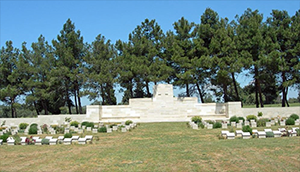
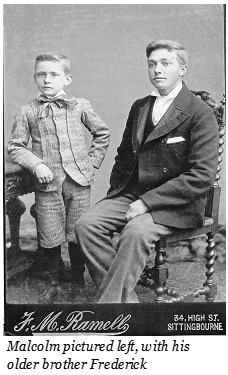 Malcolm was born towards the end of 1886, the youngest child of fruit farmer Philip and his wife Eliza Ann Dalton (née Rains - a cousin of the soon to be famous actor Claude Rains) of The Burrs, Cellar Hill, Lynsted. Malcolm had an elder brother, Frederick, and two elder sisters, Cecilia and Mary. On leaving school Malcolm worked on the family fruit farm.
Malcolm was born towards the end of 1886, the youngest child of fruit farmer Philip and his wife Eliza Ann Dalton (née Rains - a cousin of the soon to be famous actor Claude Rains) of The Burrs, Cellar Hill, Lynsted. Malcolm had an elder brother, Frederick, and two elder sisters, Cecilia and Mary. On leaving school Malcolm worked on the family fruit farm.
According to the 1911 Census, Malcolm is recorded as being employed on his father's fruit farm. Unfortunately his military service records have not survived, but going by his regimental number he probably enlisted in the Royal East Kent Yeomanry, 1st South Eastern Mounted Brigade, 1st Mounted Division in Faversham shortly after the census around May 1911.
His regiment was mobilised on 4 August 1914 at the outbreak of war, under the command of Lieutenant Colonel The Earl of Guildford. At this time, the regiment was equipped only with saddles, rifles and two machine guns. By the end of August some horses arrived but they did not become fully equipped with transport and weapons until October.
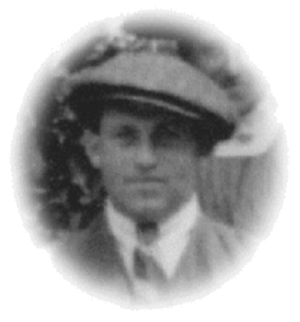
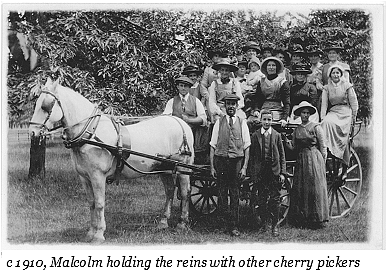
The 513 strong Brigade was stationed at Sturry Court, Broad Oak, near Canterbury, the home of Viscount Milner, who was to become Secretary of State for War in 1918. Milner agreed to turn the house and grounds over to the 1/1st Royal East Kent Mounted Rifles for military purposes. At the beginning of 1915 the regiment moved to the Canterbury Polo Ground at Littlebourne, from where it concentrated on defending the Kent coast.
It had become clear that warfare had changed radically for career soldiers. Mounted Regiments "dismounted" and in many cases were given scant trench warfare training. Thus, Malcolm left Canterbury as a foot soldier. The following extract from his Regiment's War Diary details the voyage:
| 23 Sept, 3.20am Canterbury | The Regiment composed of 26 Officers and 487 other ranks (Total 513) left Canterbury |
| 23 Sept, 11.45am Liverpool | Arrived Liverpool |
| 23 Sept, 12.30pm Liverpool | Embarked on HMT 2819 (RMS Olympic, White Star Line) |
| 25 Sept, 9.55am | Voyage from Liverpool commenced |
| 1 Oct, 3.35pm Mediterranean | Lighted 2 boatloads of French and Spanish sailors flying signals of distress, their ship having been torpedoed by hostile submarine. Ship stood by and took sailors on board. |
| 1 Oct, 4.30pm | The ship was attacked by hostile submarine in the Mediterranean about 200 miles from Mudros. A torpedo was launched at our ship, which missed the stern and upon our guns opening fire the submarine disappeared. |
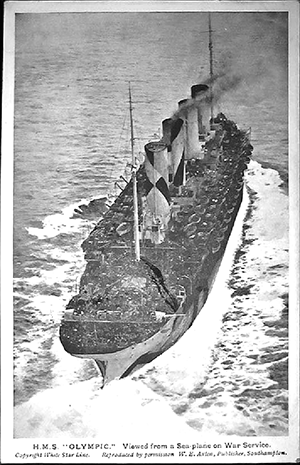 The ship on which Malcolm sailed, the now "HMT" (Hired Military Transport) Olympic 2810, was the oldest of the three "Olympic Class" vessels built by Harland and Wolff for the White Star Line. Her two sister ships were RMS Titanic, sank after hitting an iceberg on its maiden voyage in 1912, and RMS Britannic which sank on 21 November 1916, after hitting a mine laid by the German minelayer submarine U79 in a barrier off Kea, Greece. It was serving as a hospital ship at the time. Olympic had been stripped of her luxury fittings, the portholes and lights covered, and armed with 12-pounders and 4.7-inch guns. The ship was now able to convey up to 6,000 troops.
The ship on which Malcolm sailed, the now "HMT" (Hired Military Transport) Olympic 2810, was the oldest of the three "Olympic Class" vessels built by Harland and Wolff for the White Star Line. Her two sister ships were RMS Titanic, sank after hitting an iceberg on its maiden voyage in 1912, and RMS Britannic which sank on 21 November 1916, after hitting a mine laid by the German minelayer submarine U79 in a barrier off Kea, Greece. It was serving as a hospital ship at the time. Olympic had been stripped of her luxury fittings, the portholes and lights covered, and armed with 12-pounders and 4.7-inch guns. The ship was now able to convey up to 6,000 troops.
The incident noted in the War diary on 1 October was to cause problems for the Olympic's Captain, Bertram Fox Hayes. Records show that on 1 October lifeboats from the French ship Provincia were sighted. The Provincia had been sunk by a U-boat that morning off Cape Matapan. On seeing survivors in the water Captain Hayes stopped the ship and was able to rescue 34 people. The British Admiralty accused the Captain of putting the ship in danger. It was considered that the Olympic's best defence was its speed and stopping it in waters where enemy U-boats were active rendered her an unmissable target. However, the French Vice-Admiral Louis Dartige du Fournet awarded Hayes the Gold Medal of Honour.
The War Diary continues:
| 2 Oct, 11.30am Isle of Lemnos | Arrived Mudros Bay (Isle of Lemnos) |
| 4 Oct, Isle of Lemnos | All troops on board the "Olympic" were inspected by the Governor of the Island who commented on the fitness and physique of the Regiment |
| 7 Oct, Isle of Lemnos | Disembarked into HMT 227 (Abassiah) |
| 7 Oct, 9.20pm Gallipoli Peninsula | Arrived Bay of Hellos |
| 7 Oct, 11.30pm | Disembarked on W Beach. Marched via coast to Gully Beach thence to Gully Ravine |
| 8 Oct, 2.20am | Arrived Gully Ravine. 1st and 2nd Squadrons occupied Eski Lines and 3rd Squadron, Machine Gun Section and Headquarters dug themselves in in Gully Ravine. Regimental headquarters were established in Gully Ravine at the sharp bend just below the Boomerang (Gap) |
On his arrival, Malcolm's regiment was attached to the East Lancashire Division. They had been hit hard in the middle of August 1915 and were down to little more than one third of their normal establishment through battle casualties and sickness.
The month preceding Malcolm's death played out as follows:
| 9 Oct | 50% of the officers and NCOs in trenches at Fusilier Bluff for general instruction. | |
| 11 Oct | Remaining officers and NCOs in trenches at Fusilier Bluff for general instruction. One NCO killed. | 1642 L/Cpl J C Hammond |
| 12 Oct | One private killed. | 1773 Pte E Everett |
| 13 Oct | 6 Officers and 2 troops - per squadron - occupied trenches at Fusilier Bluff. Machine Gun Section also occupied trenches. | |
| 14 Oct | 8 Officers and 40 NCOs men (Base details) arrived at Gully Ravine from Mudros (Isle of Lemnos). Time recording. | Appendix 1 * |
| 15 Oct | 4 Officers and 4 troops occupied support trenches behind Fusilier Bluff from this date to the 21st instant. 1 officer and 14 NCOs and men of the Machine Gun Section with 2 machine guns attached to 125th Brigade for duty in the trenches from this day to 18th instant. | |
| 16 Oct | Alarm gong | Appendix 2 ** |
| 18 Oct | 1 Officer and 1 troop attached to the 7th Lancashire Fusiliers who occupied trenches on the right of the Ravine from this date to the 21st instant. | |
| 19 Oct | One private wounded | 2792 Pte Bourne |
| 21 Oct | 1st and 2nd Squadrons, 2 troops of 3rd Squadron occupied trenches on the left of Gully were attached to 7th Batt Lancashire Fusiliers. Lt Col The Earl of Guilford admitted to hospital with dysentery. The Machine Gun Section to relieve 2 guns of the 125th Brigade from this date to the 24th instant. | |
| 23 Oct | Capt R M Sebag Montefiore, Capt H H Dawes, Lt S R T A M Williams and 2nd Lt F N Tuff wounded through explosion of Cricket Ball Bomb, Lt H R Farnell Watson appointed Brigade Bombing Officer. | |
| 25 Oct | Lt S R T A M Williams died of wounds. | |
| 29 Oct | 1st Squadron occupied trenches on the right of the Ravine for 2 days. | |
| 30 Oct | Capt C T Fox admitted to hospital. | |
| 31 Oct | One private died of dysentery at Alexandria | 1871 Pte H Eddon |
| 1 Nov | The Regiment occupied the trenches right of the Ravine for 3days. One private wounded. | 1843 Pte Wenborne |
| 5 Nov | 2nd Lt F N Tuff died of wounds at Malta. | |
| 7 Nov | The Regiment occupied the trenches from Inniskillin Inch to Fusilier Bluff for 5 days. |
* Appendix 1 In order to assimilate the methods of recording time in the Royal Navy, the French and the British Forces respectively and to secure uniformity in referring to hours of issue and dispatch of orders, instruction and messages, the method of recording time in vogue in the Royal Navy will be adopted throughout the Mediterranean Expeditionary Force. All time to be indicated will be written in a group of four figures. The times between 12 midnight and noon will be written as heretofore but without the addition of "AM" and the "0" must appear at the commencement of any group indicating a time earlier than 10am. Figure "0" must also be inserted immediately in front of the last figure when less than 10 minutes are indicated. Thus
|
||
** Appendix 2 An empty shell case will be hung within easy reach of the Sentry at Regimental Headquarters which will be sounded in the event of a Poison Gas Attack. On hearing the gong struck all ranks will don their Gas Helmets. |
Sadly, Malcolm survived just 34 days after landing at Gallipoli. His fate is recorded in the War Diary:
| 8 Nov | Two NCOs and 1 private wounded | 1357 Sergt Dalton 1295 Sergt J M McLeod 2160 Pte Thomas |
| 9 Nov | One NCO died of wounds | 1357 Sergt Dalton |
The family back home received the sad news of Malcom's death just three weeks after the death of his brother-in-law, 37 year old Richard Henry Wright, the husband of his sister Mary.
The news of Malcolm's death was reported locally:
| Faversham and North East Kent News of 4 December 1915 |
LYNSTED YEOMAN KILLED. The death is reported from Gallipoli of Trooper Malcolm Dalton, East Kent Yeomanry, who, it appears, was killed on November 10th by shrapnel. |
| East Kent Gazette of 4 December 1915 carried two pieces. |
Firstly, from his parents: DEATHS: DALTON. November 9th on Gallipoli Peninsula, Malcolm Philip, the younger son of Mr. and Mrs. Philip Dalton, Cellar Hill, Lynsted, aged 29 years. In loving memory of our dear boy. And more fully: DEATH OF A LYNSTED YEOMAN. SERGT DALTON KILLED AT GALLIPOLI. A STRIKING TRIBUTE FROM HIS COMMANDING OFFICER. A sad blow has befallen Mr. and Mrs. Philip Dalton and family, of The Burrs, Cellar Hill, Lynsted, in the death of their younger son, Sergeant Malcolm Philip Dalton, R.E.K.M.R., the news of which has been received this week. The family had just sustained a bereavement in the death of Mr. Richard Wright, a son-in-law, but on Monday morning came the sad news that their son Malcolm had lost his life in Gallipoli – the result of an accident, it is true; but, nevertheless, the young man laid down his life for his country as truly as though he had fallen in action. Note 1: Prior to the war, Allan Leach Lewis had played cricket for Kent and in 1904 played centre-half for Tottenham Hotspur FC. He survived the war. |
Although initially buried at Gully Beech Cemetery, after the Armistice, Malcolm's remains were moved to Pink Farm Cemetery, Helles, Turkey. The local name of the cemetery is Sotiri Farm but took its Anglicised name from the red soil in that area. |
Malcolm is remembered at the head of his parent's gravestone in Lynsted Churchyard extension: In loving memory of |
All British and Imperial forces in the Helles bridgehead were evacuated from Gallipoli by 8 January 1916. History tells us the horror of the Gallipoli campaign, which was ultimately unsuccessful.
Malcolm was posthumously awarded the 1914-15 Star and the British War and Victory medals. [See Appendix 1] In April 1916, Malcolm's mother, as sole legatee, received £2 of money owed to her late son. In September 1916 she received a further £3 8s 4d (£3.41½p). In September 1919 Malcolm's war gratuity of £7 was also received by his mother. [See Appendix 2] On the granting of probate Mrs Dalton also received £235 15s 6d (£235.77½ p). Taken together these amount to roughly £12,000 in today's money.
Here we see Malcolm in happier times:
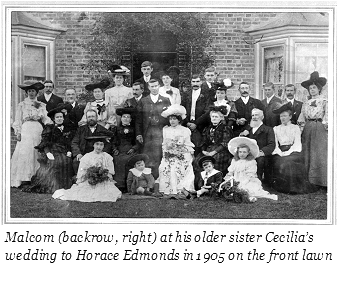 |
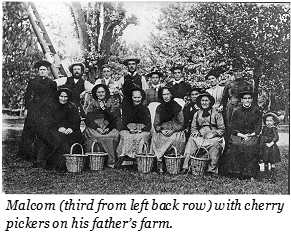 |
The Lynsted with Kingsdown Society is indebted to Malcolm's great niece, Sally Coupland, for all her help with information and for kindly agreeing to the use of family photographs.
Background Items
| The following extracts are from a soldier's letter home and a War Office report which gives us insight into the conditions that Malcolm faced in his short time in the field. Kent Messenger, September 25th, 1915 |
Life with the Mediterranean Forces.The following extracts from a letter from Private E. Jeffrey, of "B" Company, 2nd-5th Buffs (attached to the Queen's Own, 2nd-4th Royal West Kent Regiment), son of Mr. and Mrs. W.S. Jeffrey, of Meadowside, Kennington, tell graphically of life with the British Expeditionary Force. Acknowledging a letter from home, he says: We landed here on August 10th; sent into the trenches August 13th; sent down to base August 31st; returned to trenches September 4th. You will see by the foregoing that we had three days at the base after we landed, then eighteen days in the trenches, four more days at the base, and now we are in the firing line again. There seems to be very little going on along this part of our front, and we are only troubled with a few snipers and occasional shell fire.
When we are at the base we get bathing in the sea every day, but unfortunately during the last four days we were down there I was so knocked up for the first three days, that I couldn't appreciate a bathe and only went in to get one or two layers of dirt off. I think what knocked me up was the march down to the base (a heavy march over sand with equipment) on an empty stomach. I am all right again now. We were given out greatcoats water proof sheets and our change of clothing while we were at the base, so we are better off now than we were before, and can sleep warmer at night. The flies are a shocking pest out here, and we have the greatest difficulty in not eating them together with our food. They have an absolute disregard for life or death, and consequently you have to pick them off you food with your fingers, a thing you would never have to do in England. It is a great treat to have letters in the trenches and I am most grateful for them. I'm glad I've come out here as it is giving me the education of my life, just as I always told you it would. It will teach me to appreciate my home for one thing, although I don't know how long I shall be content to settle down to a hum-drum life, as I believe it will be difficult to, after so much knocking about and rough living. In a postscript the writer adds: "I guess I shall be like Scott, the South Pole explorer, and have chocolate and buns under my pillow at night when I come home again, in fact, I shouldn't be surprised if I didn't manage to get down two or three beef steak puddings during the hours of slumber. They would make a good substitute for four hours' trenching at midnight anyhow." |
Extract from: THIRD SUPPLEMENT TO THE LONDON GAZETTE. Of FRIDAY, the 7th of APRIL, 1916 |
War Office, London, S.W ., 10th April, 1916. MY LORD,- On the 20th October in London, I received your Lordship's instructions to proceed as soon as possible to the near East and take over the command of the Mediterranean Expeditionary Force. My duty on arrival was in broad outline:- (a) To report on the military situation on the Gallipoli Peninsula. 1. to carry the Peninsula, Two days after my arrival at Imbros, where the headquarters of the M.E.F. was established, I proceeded to the Peninsula to investigate the military situation. The impressions I gathered are summarised very shortly as follows:- The positions occupied by our troops presented a military situation unique in history. The mere fringe of the coast line had been secured. The beaches and piers upon which they depended for all requirements in personnel and material were exposed to registered and observed Artillery fire. Our entrenchments were dominated almost throughout by the Turks. The possible Artillery positions were insufficient and defective. The Force, in short, held a line possessing every possible military defect. The position was without depth, the communications were insecure and dependent on the weather. No means existed for the concealment and deployment of fresh troops destined for the offensive - whilst the Turks enjoyed full powers of observation, abundant Artillery positions, and they had been given the time to supplement the natural advantages which the position presented by all the devices at the disposal of the Field Engineer. Another material factor came prominently before me. The troops on the Peninsula had suffered much from various causes. Other arguments, irrefutable in their conclusions, convinced me that a complete evacuation was the only wise course to pursue. It was obvious that the Turks could hold us in front with a small force and prosecute their designs on Baghdad or Egypt, or both. An advance from the positions we held could not be regarded as a reasonable military operation to expect. Even had we been able to make an advance in the Peninsula, our position would not have been ameliorated to any marked degree, and an advance on Constantinople was quite out of the question. Since we could not hope to achieve any purpose by remaining on the Peninsula, the appalling cost to the nation involved in consequence of embarking on an Overseas Expedition with no base available for the rapid transit of stores, supplies and personnel, made it urgent that we should divert the troops locked up on the Peninsula to a more useful theatre. Since therefore I could see no military advantage in our continued occupation of positions on the Peninsula, I telegraphed to your Lordship that in my opinion the evacuation of the Peninsula should be taken in hand. |

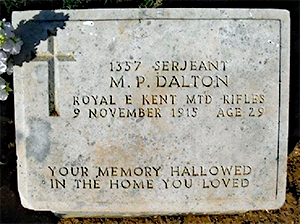
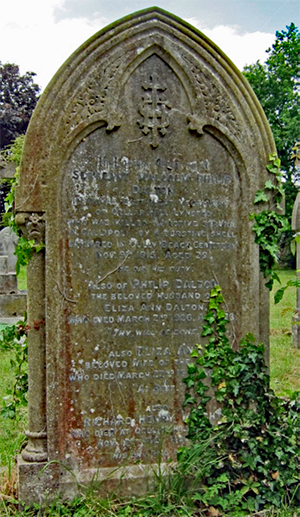
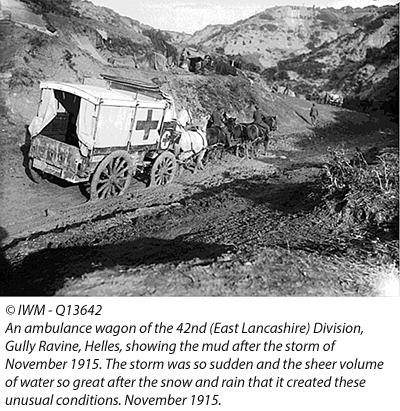 Out of the Battalion, 1,000 strong, we have had about 13 killed and anything from about 50 to 100 wounded. The signallers have had a larger proportion of casualties than the rest of the Battalion if you take the percentages of each. A considerable number of signallers have been hit by snipers while laying out wire. Besides the actual casualties, a large number of men have gone sick, the climate having knocked them up.
Out of the Battalion, 1,000 strong, we have had about 13 killed and anything from about 50 to 100 wounded. The signallers have had a larger proportion of casualties than the rest of the Battalion if you take the percentages of each. A considerable number of signallers have been hit by snipers while laying out wire. Besides the actual casualties, a large number of men have gone sick, the climate having knocked them up. World War 1 Pages
World War 1 Pages